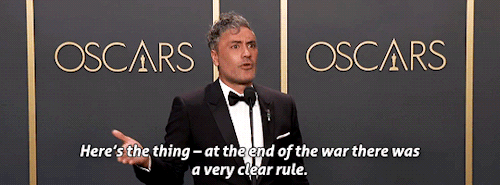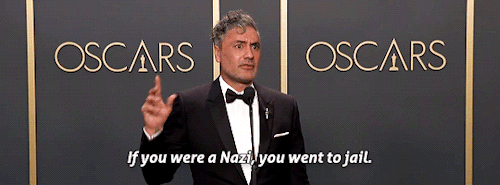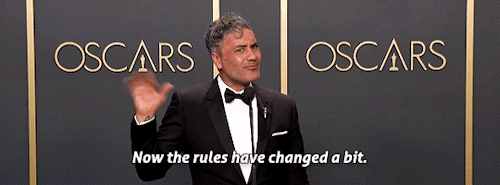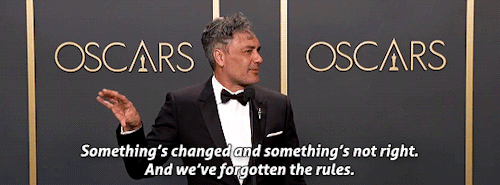Best Pranks
Best Pranks
1. Season Six, Episode Twenty-Four: The Cover-Up
When Pam and Jim learn Morse Code to not only speak about Dwight infront of him, but with the stapler and pens also can make up crazy stories and conspiracies that Dwight’s brain is “forced” to listen to.
2. Season Three, Episode Seventeen: Cocktails
When Karen spends the evening at the Corporate party apologizing to Jim for ALL the coworkers she dated before him

3. Season Six, Episode Twenty-Four: The Cover-Up
When Darryl pranks himself trying to get Andy back for blaming the warehouse for a late shipment he forgot to process, he ends up getting involved in the fire-printer expose with Andy.
4. Season Three, Episode Seven: Branch Closing
When Jim uses set of Dwight’s stationery that he uses
“From time to time, I send Dwight Faxes. From himself. From the future

PS—Also mentioned in Season Nine, Episode Twenty-Two: AARM when he references that as part of their no nonsense streak that if anyone is expecting a fax they shouldn’t yell out “Michael J Fax, from Fax to the Future!”
5. Season Nine, Episode Three: Andy’s Ancestry
Asian Jim

6. Season Seven, Episode Twelve: Classy Christmas Part 2
Jim coming out into the parking lot with Pam after the ‘Classy Christmas Party’ with Pam and it’s covered in snowmen and he doesn’t know which one has Dwight or anyone else to attack him with snowballs. It’s awful, but it’s brilliant
7. Season Six, Episode Seven: The Lover
The Mallard
How Jim discovers the Mallard (possibly purposefully by Dwight)
How Jim blasts Opera and talks with Andy to mess with Dwight
How Jim gives the Mallard to Kelly
How Jim talks to Dwight directly through the Mallard to ‘catch’ Dwight (also probably purposefully done by Dwight)
But in the end, the Mallard was a decoy
8. Season Three, Episode One: Gay Witch Hunt
When Jim sends Dwight “Gaydar” machine (metal detector) and it lights up when Dwight scans Oscar because of his belt. But Dwight is also wearing a belt so “Gaydar” tells him he’s gay too.

9. Season Seven, Episode Eight: Viewing Party
When Michael runs around the office pretending to be too busy to even speak to Erin, let alone attend her party.
10. Season Seven, Episode Eighteen: Todd Packer
After Dwight blows off Jim’s idea of cramming Todd Packer’s desk so he can only open it two inches and Dwight makes fun of it, Dwight gets very frustrated when Jim, unknowingly at the time, does it to him.
Bonus: The Best Prank we didn’t see:
Dwight knocking himself in the head with his phone, after Jim slowly fills his headset with more and more nickels.
More Posts from Jjayolsen and Others
Born a Crime
Trevor Noah’s (current host of The Daily Show) autobiography Born a Crime about an illegal child born in South Africa during apartheid is not the traditional rags-to-riches story you would expect. He does express breaking out of apartheid and the circle of ‘black payment’ but all before the success of who he is today, actually in only one sentence, as part of background information, does he mention his comedy, his touring and this is all before he came to the states or even left South Africa. His story of rags-to-riches focuses on the better life he got in South Africa thanks to the willfulness of his mother and some random luck.
There are a few reasons I love this book so much, for starters, I hear Trevor Noah in every word written, I'm not reading the book, I’m hearing him tell me his story and while watching The Daily Show provides his voice and talking mannerisms the actual art of showing and not telling, portraying his humanness in the story, that’s the beautiful part and it’s not because of The Daily Show. Giving a personal and historical understanding of his experience growing up under apartheid is great for all the obvious reasons: the picture he paints, the life different from ours that he introduces us to, but what he does so seamlessly is showing us our stories within his.

Once I got old enough I knew I was privileged. Not from the specifics of being white or an upper-middle-class background--everyone I knew was like that, but I did understand that growing up in the states that I always had food and I’d go to college. Growing up Trevor shows us that while very different, that he can show us his world of apartheid and our world all at once, the specifics are different, but the stories are the same: racism, fear, fake personas, heartbreak, domestic violence
He brings us into the understanding of how again were just different types of toasted bread (because really, races aren’t even different types of skin, it’s literally just different levels of shading, this is all so ridiculous--but anyway), how some of us were in to level seven and others 4 and others only level one but we’re all still bread.
There is no attack against the police, there is no conspiracy or propaganda agenda AGAINST the police or law enforcement.
With decades worth of law and police shows such as Law and Order (and those spin-offs), CSI, NCIS, Blue Bloods, Sherlock, Bones, Homicide Hunter, Monk, Southland; we have received propaganda for the police- how we should trust them, they’re here to help us, they exist for us. Their slogans in NYC are Courtesy, Professionalism and Respect. But these are not true.
But our daily, real-life experiences fall fall-short than the ideals presented for our consumption in mass media. It is entertaining, but it is not real. They put a siren on to go race thru a red light, text and drive, park illegally everyday-so we are not surprised when they murder young black men and children without provocation, we are not surprised that they overreact and attack black woman or any citizens against their rights granted to them just being in this country and by being humans themselves.
Whether it comes from an actual fear out of racism, or just an authoritarian ideal that they can get away with it--it does not matter. We believe the true victims of those who are murdered because we see the proof every day, the murders are just the tip of the iceberg.

The best thing about modern technology is exposing the way cops fuck over black people to white people. Literally no black person is surprised that they would do this to a black mother grieving over her child.
World Refugee Day, من از زندگی تو سپاسگزارم ( I thank you for my life--google)

صلح (Peace)





”So I feel like this is the perfect time for a film like this. I feel like the film has become more important and more relevant today, which is a sad thing.” – Oscar Winner Taika Waititi in the Press Room
Tough, Tattered and Tiny
A food desert, simply put, is an area in a community where at best residents and others in the community “best” access to food may be a local convenience store. Similarly, as technology has changed our world to more internet-based and virtual there are fewer libraries that are more spread out. While only hitting on a few of the benefits of libraries, these libraries have grown in the absence of traditional libraries. They’re small, partially funded by people’s unwanted or previously read books where you can take and leave books as you please and allows those who don’t have access to wider libraries to still keep the *free* possibility of reading open. A barrier that an enthusiastic reader such as myself cannot ignore.

The most common, and smallest, are similar to those influenced or constructed by www.LittleFreeLibrary.org; that sells various little libraries that can be customized, eco-friendly and even some that also work as benches. While not ideal, these libraries can also serve as a viewpoint of the local community; are they sharing information about learning how to knit, how to join law enforcement, gaining citizenship? Are there more kids or adults, fashionistas or environmental advocates? Both? For those who cannot access a traditional local library, and even those that can; these smallest libraries are simply fabulous and I would encourage anyone to check out a book, check in a book or make a donation.
June 12th 2018: National Die-in
Two years ago was a bad time for Orlando Florida. In a short time, a child had been ripped away from the beach and his parents and killed by an alligator, the Zika virus had become more prominent and in the early morning hours of June 12th, 49 people had been murdered in the largest domestic terror incident in the US history, and the highest casualty terror incident in US history except for 911.
At the time I was going to Orlando for a vacation, and to visit family, and while I noted how there was a lot going on as I heard about the attack in a taxi cab later that morning, I had come to a more startling realization. I had no reaction, I knew it was upsetting, I knew many had been murdered and I was sad but I was not shocked, confused, or in wonder.
The incident at Pulse was the first acknowledgement that I had become desensitized to mass casualty incidents, to terrorism, to violence and to hate. Thinking back, maybe this should have been a warning to the outcome of the 2016 Presidential elections that were focused and promoted hate, elitism, and close-mindedness. At this moment, 12-minute Die-in’s, are happening in remembrance of these losses and in honour those who were taken by working towards lessening these events in the future

Why We March
Today around the world we march again. We march for the women who give themselves, to allow us to come into the world. We walk for cisgender women, transwomen, black women, poor women, brilliant women, all women.
We march because women who in 1920 were allowed to raise their voice and speak their mind in public to vote, but not at home. Until the 1990s, and even in many states today a women’s vocal pronouncement of “NO” when her husband wanted to have sex, was not an option. Even today, there are many states where it is only marital rape if there is proof of extreme threat of violence or violence.

We march because women, who on average go for higher degrees and do better in the classroom, on average only make $0.79 for every dollar a man makes. An average, Black woman and Hispanic woman make less.
We march because men have to do so little to be considered great leaders and parents, but one misstep and women are seen as being harmful and neglectful to their children. Those first nine months where women not only couldn’t eat, drink, smoke, exercise as well as were the incubators for their chidren, means nothing. Perfection is the bare minimum asked by society.
We march because harassment, sexual violence and intimidation are not a rarity that women experience, but something that their whole lives are focused on, there is no day off. They know how many paces back the cute neighbor with the dog is, how long that car has been at the end of the block, where the bulbs are to replace the bulb in the entry way. Women know these things not because they’re mothers, or it’s part of their DNA, because they have to, TO SURVIVE.
These are the shameful reasons why we march. We march because society has allowed these and other aspects of women lived to continue as second rate, as not good enough, when they are the ones dragging us ahead. This why we all march.
Hailed, Held, Hung
While my main venture into a library will be for books, as previously stated they are also community centers and should me a resource to increase opportunity and equality of the local residents. A recent episode of Patriot Act with Hasan Minhaj looked at another form of inequality, unequal access to the internet.
The internet had become an additional resource all residents in the U.S. and in other developed nations need to have in order to be a successful part of society. Further than the internet, more accurately it’s the instant access to the internet via smartphone but even if not instant the internet has replaced many telephone, mailing and older forms of communication and information access, especially when it comes to research, employment and getting assistance. And again, libraries were part of making up for these inequalities for those who cannot afford, understand or otherwise access the internet.

Unfortunately, again libraries and the communities who need these opportunities and access are hit the hardest. Closing libraries, shorter operating hours and fines related to late library books are creating a further divide. As the world progresses, we have to make sure that not only we don’t leave people behind but that we are doing what we can to rise everyone up together
A Walk to Remember, Holes
The book is almost always considered better than the film, and really, how couldn’t it be (shout-out to all the people who were in the same theatre as me during the first Harry Potter and had to deal with me going thru the book in the theatre and complaining about the inaccuracies for the first third); there’s no budget, no timeline for the writer or the reader and you get to become more immersed (bonus: movies are expensive!). But except for times when the movie greatly alters the story (the Giver), I understand that movies are more restricted than the books and sometimes even very important plot points not 100% relevant to the main story ‘must’ be omitted (R.I.P S.P.E.W). However, two stories that were big as I grew up went from book to movie, one that I first saw as a movie (A Walk to Remember) and one I first read as a book (Holes)

A Walk to Remember was a big deal in my school when it first came out, even after those who saw it first shouted about the ending and while the dramatics of young love being lost to death area big plot point in young adult novels, many of the aspects of high school were accurate even when they’re cliché. There are kids who are ‘losers’ and hate it, but also don’t care; and some people who are assholes in elementary school, are assholes for life—but others, may not even be assholes by the end of high school whether due to basic maturing and growth or dramatic circumstances change them (I’ve seen both). About ten years after the movie came out, I came across the book and decided to read it as there some things in the book that didn’t make sense to me (main point, her leukaemia being so devastating at such a young age and the school being overly involved with Landon’s criminal activity punishment). Turns out, the original book was set in the 1950s!!! but adapted so more teens would go see it. As with most of the stories I love, this one I loved because it gave a good background as to why and how Landon falls in love with someone ‘not his type’, it’s both explained and unexplainable—completely accurate and brings the idea to kids that there are many reasons why people are the way they are and you can only truly know someone by getting to know them. As a side, while mostly ignored in both the movie and novel, both stories do have the reconnection made between Landon and his father.
Holes: is, was, and will always be; hysterical. From Stanley = Yelnats, to the curse being centered on a pig and a dumb rich girl, to the kids at camp green lake really not being hardened criminals but just really overactive kids, and of course, the fact that them digging holes was going to not just make them strong enough to beat the counsellors up. There were so many amazing stories and lessons portrayed in both the movie and the novel: racism, how love can turn into anger, how women can be ruthless, how it’s important to find love that is equal, to thank your friends who try and help you and to always be optimistic (though maybe a bit more realism wouldn’t have hurt). Both the film and the movie portrayed the lessons they wanted to get across well, especially, the greatness that is true friendship and compassion for others.

Both A Walk to Remember and Holes to me are stories that were adapted and made sure to keep the true story and the experiences of the characters intact, so while not everything aligns up perfectly, only a snob would complain about the outcome.
Films that I shouldn’t be so bitter about
image
Finding Nemo was so long ago that I can’t remember why I was so against it for so long. I’m not anti-children’s movies as anyone who knows me can confirm, but I was very much against Finding Nemo, I just didn’t understand the hype. I hold off on seeing for at least two years and either finally saw it when I was sick one day or when a friend forced it on me. And oh my did I LOVE IT!! One of my friends who pushed it on me probably highly regretted doing so as then I became slightly obsessed with it, it’s hysterical. I could say that part of why I love this film is all the little lessons peppered throughout with Marlin and Nemo (parents—chill), the sharks in rehab (you can always change, friendship), Marlin and Dory (don’t judge someone too quickly) and even just Dory herself (don’t limit yourself and always look on the bright side). These add to what makes the movie enjoyable, but the movie is just funny. My favorite scene that I will laugh-cry just in the beginning of trying to tell it to someone is when they follow the mask down into the darker level of the sea and Dory thinks Marlin is her conscious because she’s (1) forgotten he exists and (2) can’t see him. Whoops.

Life of Pi, I really-really only have myself to blame. Partially due to not learning my lesson from Finding Nemo, even though it wasn’t the same situation. The story of Life of Pi didn’t really capture me in general, about how a boy maybe a tiger and how they survive a shipwreck, even thou it usually would be at the top of my list. Maybe it’s because the ‘twist’ at the end is what they didn’t want to talk about in advertisement and focused on the visual effects which I agree with the acclaim and enjoyed, isn’t usually enough to get me to watch a film. I still enjoy the story and will definitely watch it again (except for the murderous island part, while enjoyable is something to learn about in the daytime), I watched the film immediately after hearing the ending from a friend, where we are left to wonder if the Tiger, Richard Parker, was real or just Pi just trying to survive. Of course, my knowing it’s coming it lost all of why I wanted to watch it, but it was still great and thought-provoking. Just wish I got to experience it for myself, not thru someone else

PS—And Finding Dory, ugh, beautiful
-
 katastrophycal liked this · 3 years ago
katastrophycal liked this · 3 years ago -
 parislover648-blog liked this · 3 years ago
parislover648-blog liked this · 3 years ago -
 sharpie-arpi liked this · 3 years ago
sharpie-arpi liked this · 3 years ago -
 jjayolsen reblogged this · 4 years ago
jjayolsen reblogged this · 4 years ago